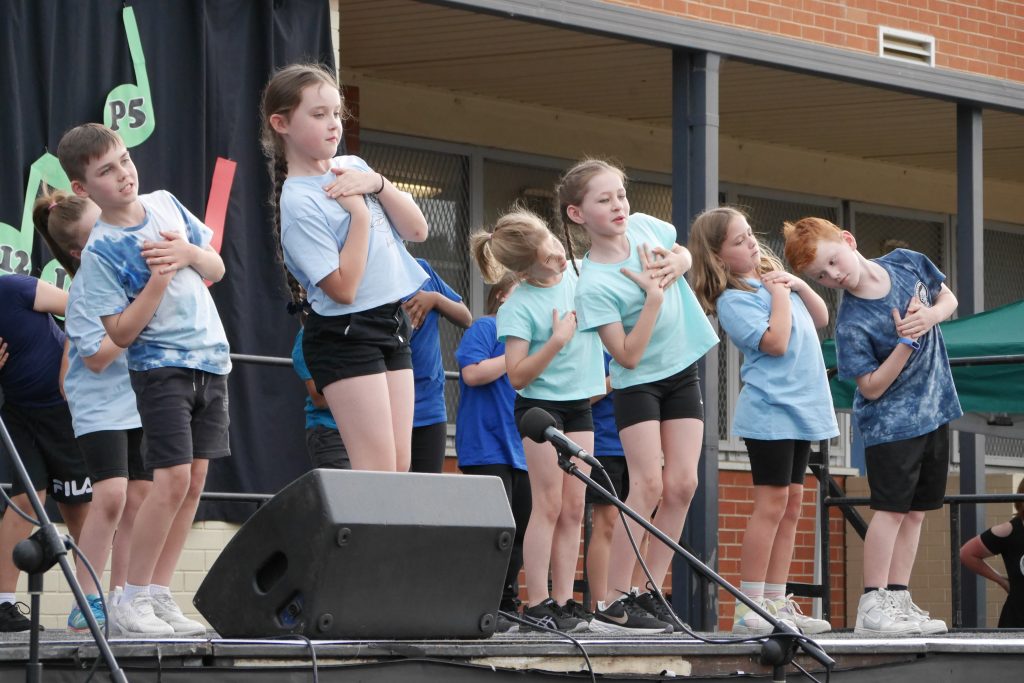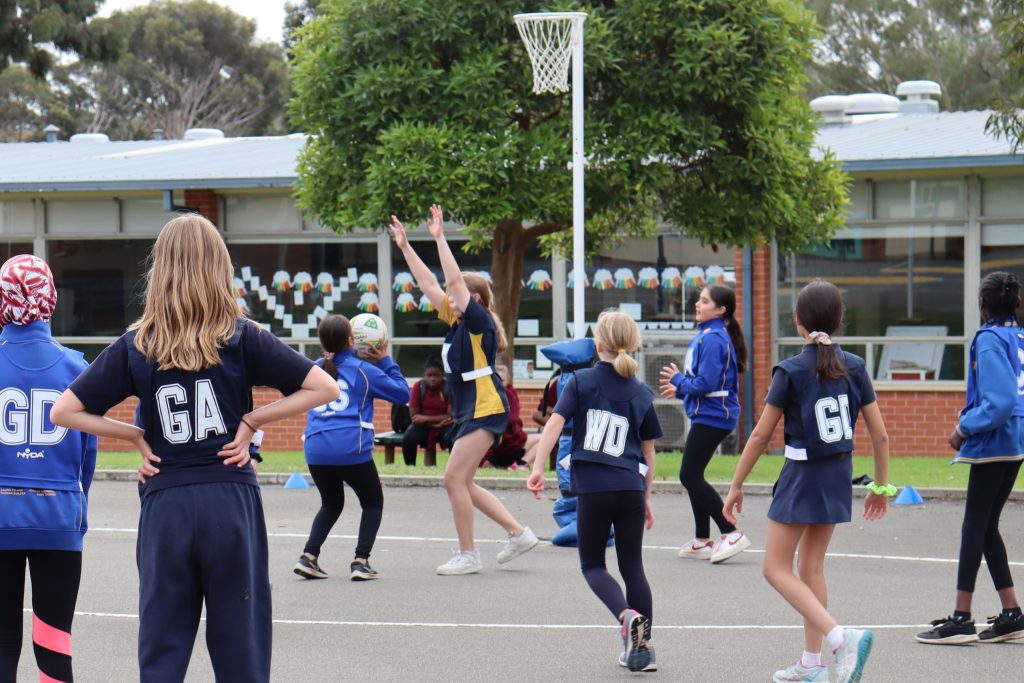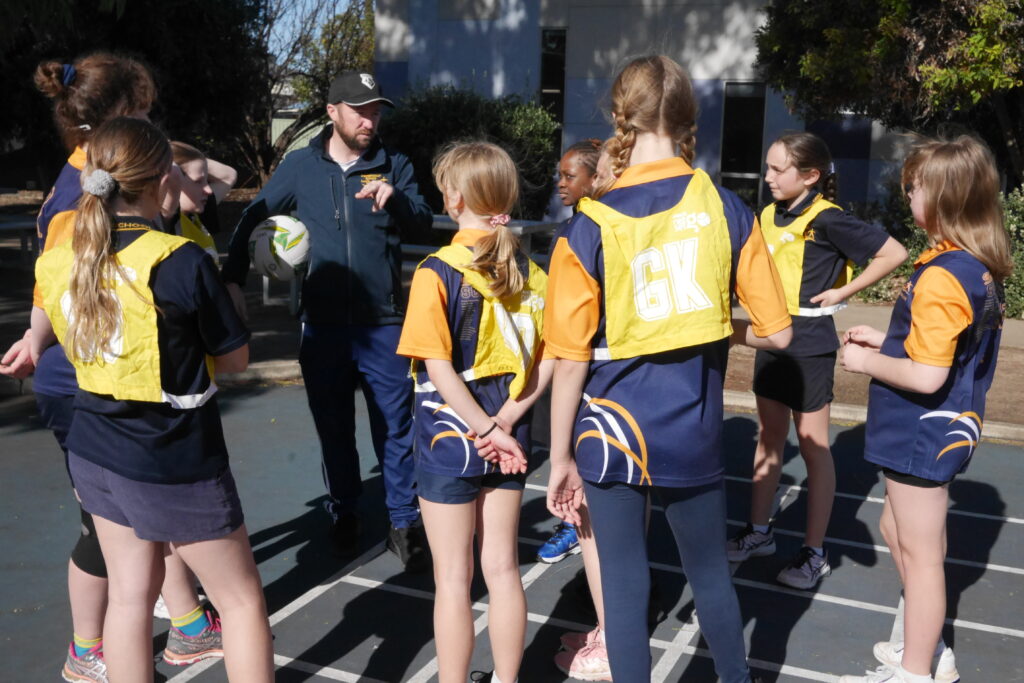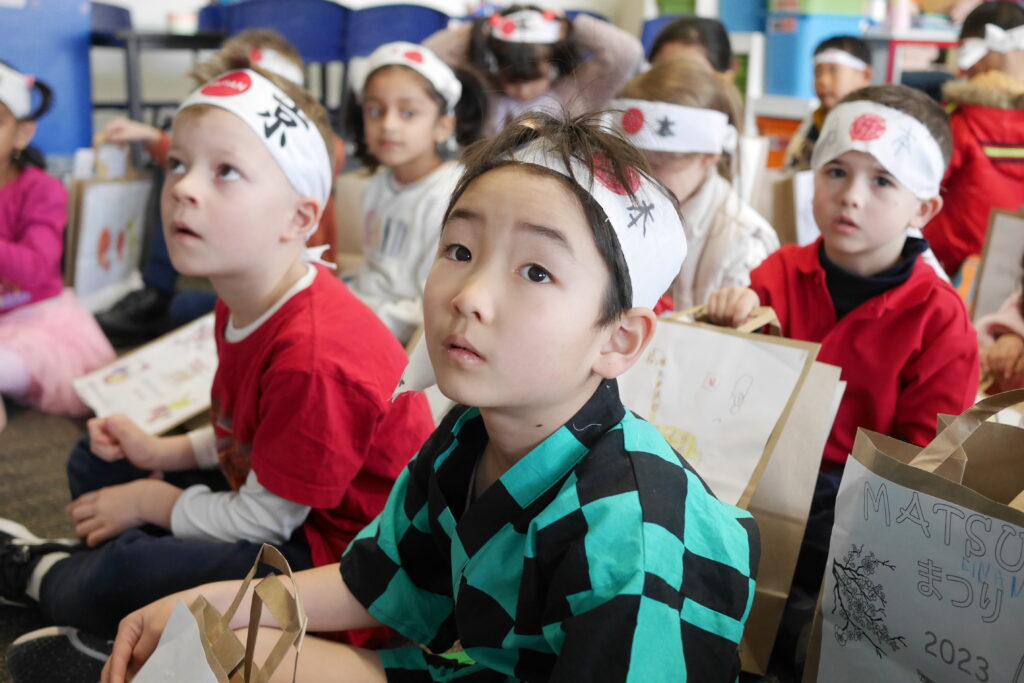The Performing Arts is a specialist area within the school curriculum and is acknowledged by our school community as a highly regarded and important part of every student’s learning.
The Performing Arts program at Dernancourt School is inclusive of every child from Reception to Year 6. Every child in the school is involved in a performing arts lesson with a specialist teacher each week. The program contains elements of singing, playing, theory, drama, dance, listening and performance.
In all Music lessons, students have access to a range of classroom percussion instruments. They learn about the elements of music including pitch, rhythm, beat, form, structure, timbre and basic notation through singing, playing percussion, composing, making and responding to music.
As part of the Festival of Music, students in Year 5/6 can choose to be a part of the Festival Choir on a weekly basis over three terms, with a singing instructor Deb Brenan from the Education Department Music. A final concert is held at Festival Theatre where students are joined by fellow choristers from schools across South Australia. This is an amazing experience for the students.
Term 4 all classes are involved in the whole school concert and perform singing and dancing on a stage.


At Dernancourt School students participate in one 50-minute Physical Education lesson per week, taught by a specialist Physical Education teacher. These lessons focus on fundamental movement skills, movement concepts and strategies, game sense, spatial awareness, participation and teamwork. Classroom teachers also create opportunities for fitness sessions with their students.
We hold a sports day each year where students in house teams participate in a program of cooperative tabloid events and sprints.
All students participate in their House groups:
Students from Year 4 have the opportunity to represent our school in SAPSASA (SA Primary Schools Sports Association) competitions in sports such as netball, cricket, football, soccer, basketball, tennis, athletics, softball, cross country and swimming.
We also aim to utilise school sporting grants to help us learn and develop new skills in different sports. Sporting Clinics such as Auskick, Adelaide Strikers and others are also used to give students as much opportunities and exposure to sport as possible.
Students participate in a 50-minute lesson each week in which they are taught by a specialist teacher. Students are taught safety, healthy eating, friendships, bullying, the human body, growth and cultural awareness.
Through all this learning we aim for students to better understand themselves and live a healthy and productive lifestyle with good values and respectful attitude.


At Dernancourt School, all students from Reception to Year 6 learn Japanese. Learning a foreign language gives students a new perspective on the world, encouraging them to understand their own culture, as well as developing a respect and appreciation for others.
Languages education provides students with many benefits. As well as expanding career opportunities, research shows that learning a language:
The Japanese program at Dernancourt School strives to immerse students in Japanese language and culture. We adopt a communicative based approach in our language teaching and use authentic experiences to incorporate language practice, making classes engaging and meaningful to students. Throughout the year, the students learn through fun, interactive and stimulating activities, while learning to speak, read and write Japanese.
At Dernancourt School we have established a Japanese garden which is maintained by our Garden Club. Children enjoy spending time in the garden relaxing, playing, reading and drawing.
A highlight of the program is the Matsuri Festival which is held every second year involving the whole school. Children make hachimaki (headbands) to wear on the day and each class participates in different Japanese cultural activities.
8:30 AM - 4:00 PM
Developed by ZenByte, Pty Ltd.
Copyright © 2024. All rights reserved.